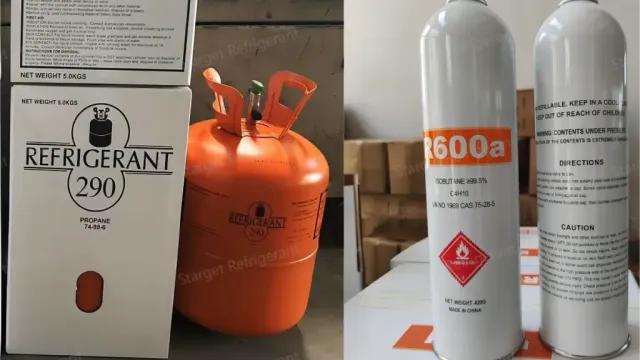Kenya bans refrigerant imports in push for sustainability

According to NEMA, Hydro-chlorofluorocarbons (HCFCs), which are mainly used in refrigerators and air conditioners, pose harmful effects on the environment including the depletion of the ozone layer.
Kenya has announced plans to phase out the importation of elements used in refrigerators and air conditioners in the next 12 months as the country seeks to tackle degradation of the environment.
In a notice to importers on Tuesday, the National Environment Management Authority (NEMA) said that these gases, scientifically known as Hydro-chlorofluorocarbons (HCFCs), which are mainly used in refrigerators and air conditioners, pose harmful effects on the environment including the depletion of the ozone layer.
"All importers are notified that the year 2025 will be the last year allowed for Kenya to import HCFC under the Montreal Protocol and the attendant amendments, of which Kenya is a signatory and has ratified the same," NEMA’s statement reads in part.
It added, "Based on the quota system, Kenya is eligible to import 171.6 tonnes for the year 2025. Importers are hereby reminded that the phase-out date for importation of HCFC for Kenya is 1st January 2026."
At the same time, importers and dealers of gases used in fridges and refrigerators in the country have been advised to ensure they apply for licences from NEMA.
"All applications for the licenses shall be made online through the Kenya Electronic Single Window System website. The deadline for application is 28th February 2025," NEMA added.
"All importers are hereby notified that importation of these substances without a valid license shall be an offence under the Environmental Management and Co-ordination (Controlled Substances) Regulations, 2007."
The Montreal Protocol
The Montreal Protocol on Substances that Deplete the Ozone Layer is a global agreement that aims at regulating the production and use of approximately 100 man-made chemicals, which are collectively referred to as ozone depleting substances such as HCFCs.
According to the 1987 agreement, countries in the developed world have been cutting their consumption of HCFCs and were required to phase them entirely by 2020. Meanwhile, developing countries agreed to start a phased process of eliminating HCFCs in 2013 with a projected total phase-out by 2030.
"Throughout this process, the Parties are encouraging all countries to promote the selection of alternatives to HCFCs that minimize environmental impacts... For refrigeration and air conditioning, this means optimizing refrigerants, equipment, servicing practices, recovery, recycling and disposal at end of life," the United Nations Environmental Programme (UNEP) notes in its website.





